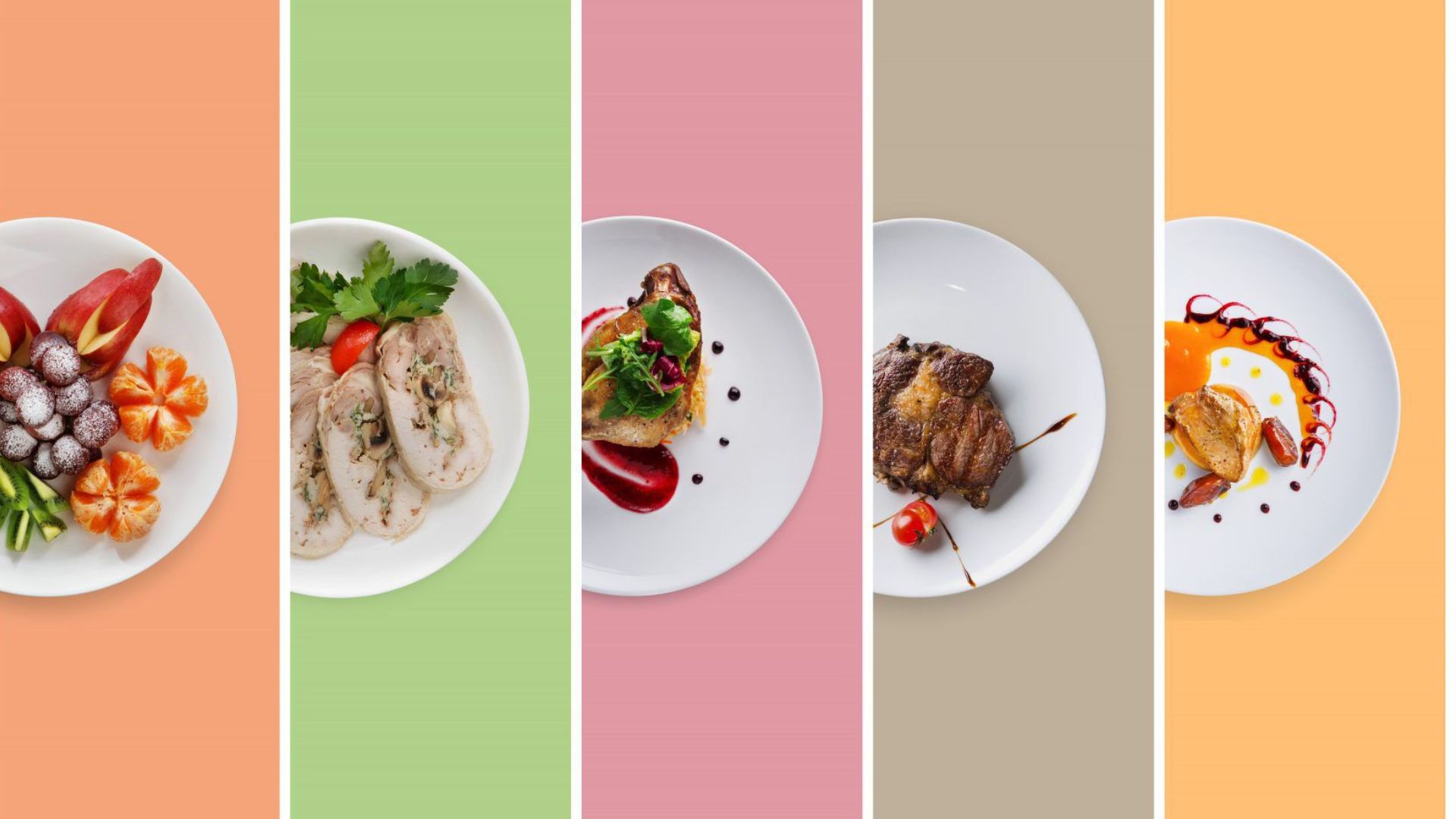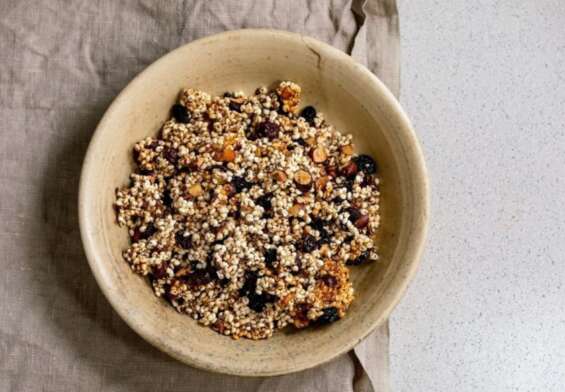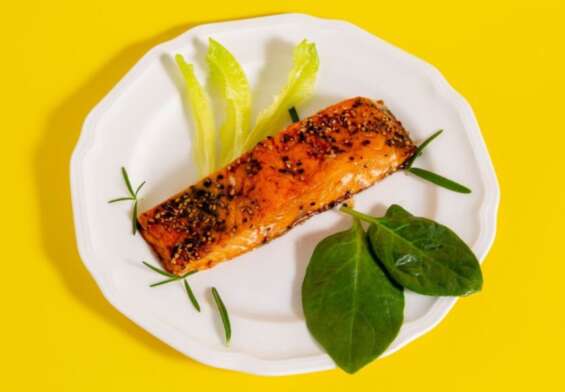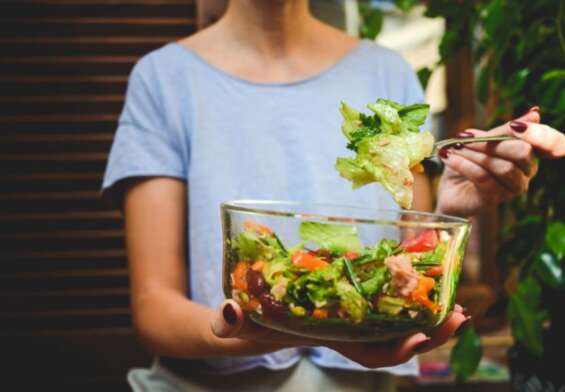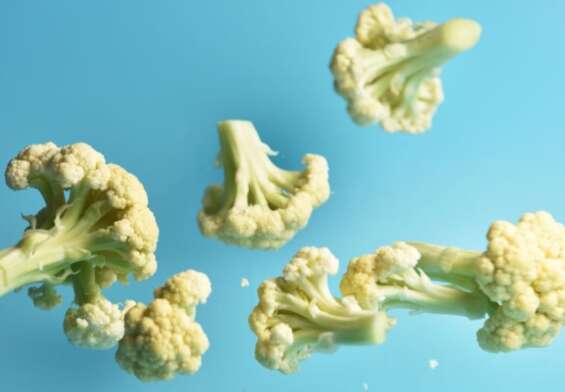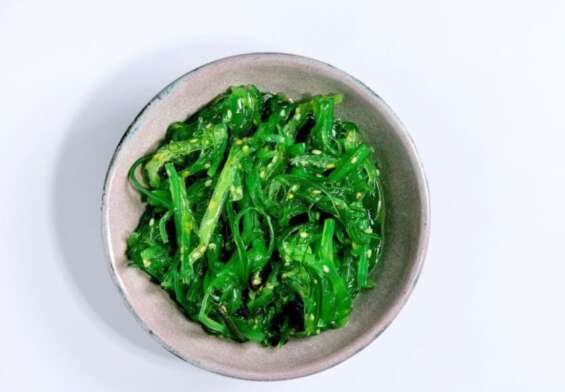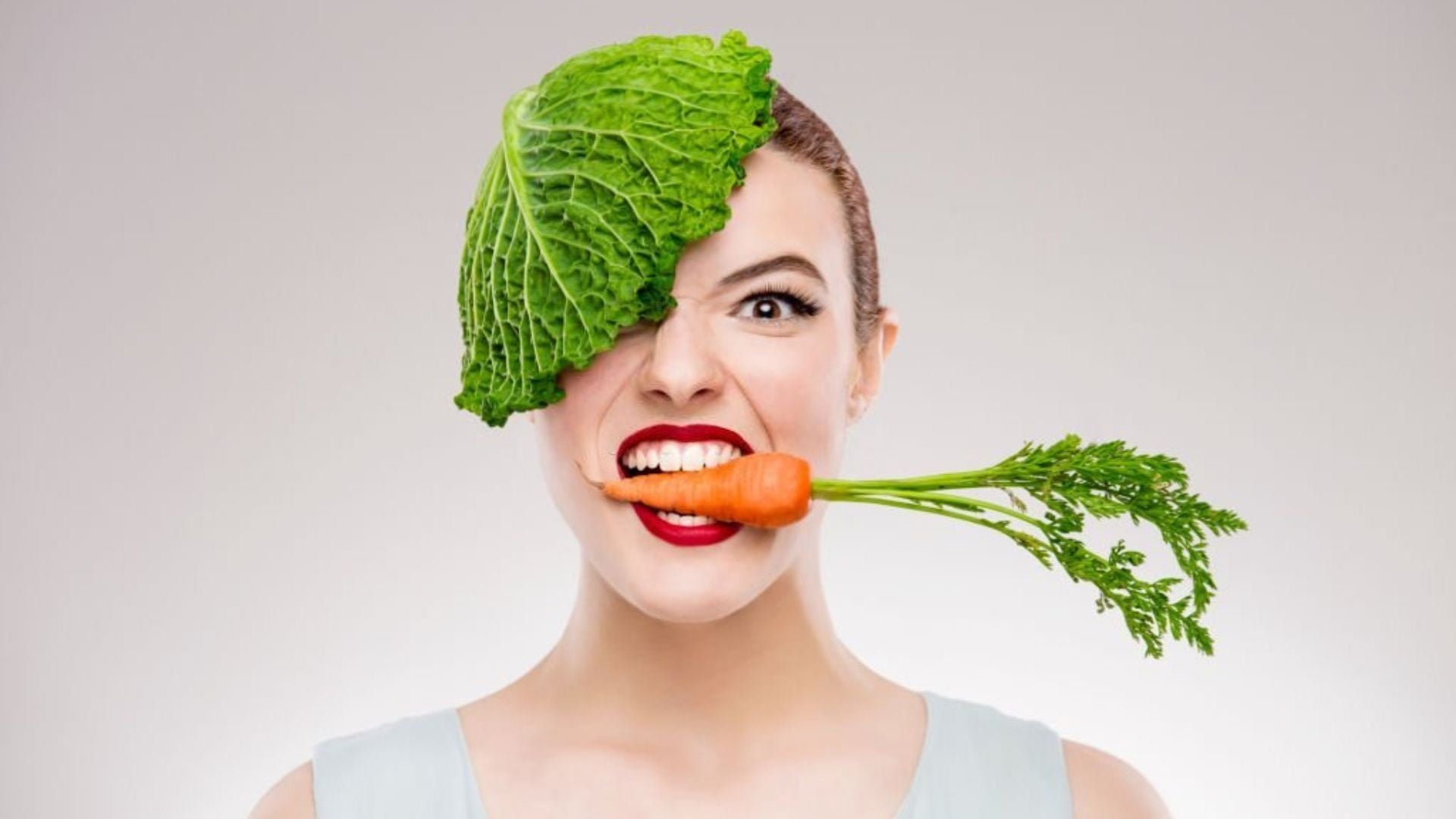
Vegetarian Diet: Go Meatless and Improve Your Health
Vegetarianism is a dietary lifestyle that has gained attention in recent years due to its purported health benefits. A vegetarian diet is composed of plant-based foods such as fruits, vegetables, grains, nuts, and seeds. It excludes all animal products including meat, fish, and dairy. A vegetarian diet has been associated with numerous health benefits including reduced risk of cardiovascular disease, certain types of cancer, and obesity. Additionally, vegetarian diets may also offer environmental benefits due to their lower resource requirements and reduced greenhouse gas emissions. This article will discuss the health benefits and environmental impact of vegetarian diets as well as provide tips for transitioning to a vegetarian lifestyle.
How a Vegetarian Diet Can Promote Healthy Weight Loss
Are you looking to shed some pounds without sacrificing your vegetarian lifestyle? Well, you’re in luck! Believe it or not, a vegetarian diet can actually promote healthy weight loss. Here’s how:
First of all, it’s important to remember that not all vegetarian foods are created equal. While some vegetarian dishes can be quite unhealthy when loaded with cheese, cream, and other high-fat ingredients, there are also plenty of nutritious options to choose from.
Vegetarian foods like beans, lentils, tofu, and other plant-based proteins are packed with healthy nutrients and are low in fat and calories. That makes them a great choice for those looking to shed a few pounds.
In addition, plant-based foods are generally high in fiber and water, which helps them stay in your stomach for longer periods of time, meaning you’ll feel fuller for longer. This can help to reduce cravings and help you stay on track with your weight loss goals.
Finally, a vegetarian diet is generally low in saturated fat and cholesterol, which can help to reduce your risk of cardiovascular disease and other health problems. So, by eating more vegetarian meals, you can help to promote your overall health while you work to lose weight.
As you can see, a vegetarian diet can be a great way to promote healthy weight loss. So, go ahead and enjoy your veggies, and happy dieting!
How to Incorporate Vegetarian Foods into Your Meals
Are you looking for ways to incorporate more vegetarian foods into your meals? Well, don’t worry, we’ve got you covered! Here are a few tips to help you get those veggies in while still having fun in the kitchen.
- Get creative with your toppings. Instead of regular cheese, try topping your pizza with some vegan cheese, or sprinkle some grilled eggplant and zucchini onto your salad. Not only will this add a delicious twist to your meals, but it will also add a healthy dose of veggie goodness.
- Go global. Try out some vegetarian cuisines from around the world. Make some burritos with black beans, roasted vegetables, and avocado, or try a spicy Thai curry with tofu and vegetables. Getting creative with global flavors can make vegetarian meals much more interesting.
- Make it soup. Soups are a great way to incorporate vegetables into your meals. Start with a flavorful broth, then add your favorite veggies, some beans or lentils, and a few herbs and spices. You’ll have a nutritious and filling soup in no time.
- Make it a wrap. Wraps are a great way to get creative with your vegetarian meals. Swap out the typical deli meats for some roasted vegetables, quinoa, and some hummus or tahini.
- Try your hand at some veggie burgers. Veggie burgers are a great way to get a delicious and healthy meal on the table. There are lots of recipes out there, so experiment with different flavors and ingredients to find the perfect veggie burger that suits your tastes.
With these tips, you can easily incorporate vegetarian foods into your meals. So, don’t be afraid to get creative and have some fun in the kitchen!
Nutrient-Rich Vegetarian Recipes for Busy Weeknights
Veggies to the Rescue!
Make your weeknight meals a breeze with these nutrient-rich vegetarian recipes that are sure to please. From delicious pasta dishes to hearty soups, you’ll be sure to tantalize your taste buds with these simple, yet satisfying meals.
- Teriyaki Tofu and Veggies: This delicious dish is sure to satisfy your Asian food cravings. Simply marinate cubed tofu in teriyaki sauce and sauté it with your favorite vegetables for a quick and tasty meal.
- Roasted Vegetable and Farro Soup: Who says soup has to take hours to make? This hearty soup is loaded with vegetables and farro, a type of whole grain. Roast your veggies in the oven while you simmer the farro in broth and you have an easy, nutritious soup in no time.
- Rainbow Veggie Pasta: What’s better than a bowl of pasta? A bowl of pasta with a rainbow of vegetables! Sauté your favorite veggies and toss with cooked pasta, olive oil, and Parmesan cheese for a meal that looks as good as it tastes.
- Grilled Veggie Tacos: Spice up taco night with these flavorful veggie tacos. Grill your favorite vegetables with a bit of olive oil and your favorite spices and fill up your favorite tortillas.
- Eggplant Parmesan: This Italian classic gets a healthy makeover. Instead of deep-frying, bake thin slices of eggplant in the oven and layer them with marinara sauce and cheese for a delicious, nutritious meal.
These easy vegetarian recipes will have you saying, “Viva la veggies!” in no time!
The Benefits of Eating a Vegetarian Diet
Are you looking to make healthier choices in your diet? Well, look no further than vegetarianism! Eating a vegetarian diet has many benefits, and even some of them may surprise you. Here are just a few:
- You’ll never have to worry about getting scurvy. That’s right, no more worrying about getting a nasty vitamin C deficiency. Vegetarianism is packed with vitamin C, so you can rest assured knowing you’ll never have to worry about that pesky scurvy.
- Say goodbye to awkward conversations about where your food came from. We all know how uncomfortable it can be to explain to your dinner date that you ate a cow for dinner. When you’re eating a vegetarian diet, you’ll never have to worry about those awkward conversations again.
- Lettuce gives you superpowers. Vegetarianism is full of leafy greens like lettuce and spinach. Eating these greens will give you superpowers like the ability to read minds, see the future, and fly. Okay, maybe not the last one, but you get the idea.
- You’ll be helping the environment. Eating vegetarian helps reduce the amount of methane gas that is produced by factory farms. This helps to reduce the amount of pollution and global warming, so you can feel good knowing you’re helping the planet while you enjoy your delicious meal.
Now that you know some of the benefits of eating a vegetarian diet, why not give it a try? You’ll be healthier, you’ll help the planet, and you’ll never have to worry about awkward conversations about where your food came from. What’s not to love? So go ahead, give vegetarianism a try and see what all the fuss is about!
How to Stock Your Pantry with Vegetarian Staples
Are you looking to stock your pantry with vegetarian staples? Look no further! Here’s a guide to help you make sure your pantry is well-stocked with all the vegetarian essentials.
First off, you’ll need some grains. Things like quinoa, couscous, and farro make great bases for meals, and you can easily transform them with different vegetables and sauces. Rice is also a must-have, and it comes in all shapes, sizes, and flavors.
Beans and legumes are also essential for any vegetarian pantry. They’re a great source of protein and fiber, and they can make a meal much more satisfying. Include a variety of canned beans in your pantry, like chickpeas, black beans, and kidney beans.
Having a variety of nuts and seeds on hand is also a good idea. They can be used to make salads more interesting or added to a bowl of oatmeal for extra crunch.
Tofu is another excellent source of protein for vegetarians, and it’s incredibly versatile. You can use it in stir-fries, burritos, curries, and more.
Finally, make sure you have some staple condiments, like hot sauce, soy sauce, and tahini. These will help you spice up your meals and make them more flavorful.
With these vegetarian staples in your pantry, you’ll be ready to whip up delicious and nutritious meals in no time!
Tips for Cooking Vegetarian Dishes for Non-Vegetarians
- Make sure to add plenty of flavors! Non-vegetarians are used to the taste of meat, so you’ll need to pack in the spices, herbs, and condiments.
- Use veggie-friendly substitutes. Instead of ground beef or chicken, substitute mushrooms, beans, or lentils for a meaty texture.
- Incorporate familiar flavors. Non-vegetarians already know and love traditional flavors such as garlic, onion, and tomato. Use these to add a familiar element to your dishes.
- Don’t forget the cheese! Adding cheese to a vegetarian dish is a great way to get non-vegetarians on board.
- Garnish with bacon bits. Even vegans can enjoy this one—fake bacon bits are an excellent way to give your dish an extra something.
- Serve with a side of meat. If all else fails, offer a side of chicken or beef to satisfy the meat eaters in your life.
- Have fun with it! Vegetarian dishes don’t have to be boring—try out new recipes, ingredients, and flavors to keep everyone excited about the meal.
Easy Ways to Get Enough Protein on a Vegetarian Diet
Are you a vegetarian trying to get enough protein in your diet? Don’t worry – there are plenty of ways to get your daily protein intake without ever having to touch a piece of meat! Check out these easy and tasty ways to get your daily protein fix:
Get a little nutty! Nuts are a great source of protein, so snack on some almonds, cashews, or walnuts throughout the day.
Make friends with the legumes. Beans, lentils, and chickpeas are all high in protein and can be used in a variety of dishes. Try adding some cooked black beans to your tacos for a protein-packed meal!
Have an eggcellent day. Eggs are a great source of protein, so try having an omelet or scrambled eggs for breakfast.
Go green. Spinach, kale, and other leafy greens are filled with protein, so make sure to include them in your salads and side dishes.
Go dairy-free. Soy milk, almond milk, and other dairy-free milk are packed with protein, so use them in smoothies or as a delicious drink.
Reach for the cheese. Cheese is another great source of protein, so add some to your sandwiches or salads for an extra protein boost.
Get your grains on. Quinoa, oats, and other whole grains are filled with protein, so make sure to include them in your meals.
With these easy and tasty ways to get your daily protein intake, you’ll never have to worry about getting enough protein on a vegetarian diet!
Plant-Based Alternatives to Meat and Dairy Products
Greetings, fellow flexitarians! Are you looking for some delicious plant-based alternatives to meat and dairy products? Look no further! We’ve got all the goods on the tastiest vegan, vegetarian, and flexitarian options out there.
First up, let’s talk about vegan alternatives to meat and dairy. If you’re craving a juicy burger, try a Beyond Burger! This vegan patty is made entirely of plants, but it tastes just like the real thing. If you’re in the mood for some “cheese,” check the tasty vegan cheese brands out there. You won’t believe how delicious they are!
Looking for a plant-based alternative to dairy milk? Look no further than oat milk! It’s creamy, delicious, and lactose-free. Plus, it’s rich in vitamins and minerals. Don’t forget to try almond milk and coconut milk as well!
Vegetarians have plenty of options too. Look for products made with tofu, tempeh, and seitan. These are all excellent sources of plant-based protein. And don’t forget about the amazing array of veggie burgers out there. There’s something for everyone!
Finally, flexitarians will love meat alternatives like veggie sausages and veggie hot dogs. These are perfect for a quick and easy meal. And if you’re looking for dairy alternatives, try vegan yogurt, vegan cream cheese, and vegan ice cream. They’re so delicious, you won’t even miss the real thing!
So there you have it, folks – all the delicious plant-based alternatives to meat and dairy products. Now go forth and enjoy your vegan, vegetarian, and flexitarian feast!
Popular Global Vegetarian Cuisines
Welcome to the world of global vegetarian cuisine! From the mild flavors of Indian curry to the zesty zing of Mexican fajitas, there’s no shortage of delicious and nutritious options for vegetarians worldwide. Whether you’re a seasoned pro or just starting to explore meat-free meals, here’s a look at some of the most popular vegetarian dishes around the world.
In India, spicy curries and dal are the staples of many vegetarian diets. These dishes are often cooked with coconut milk, which adds a rich flavor and creamy texture. Dal is a lentil-based stew that can be served with rice or flatbread, while curries can be made with a variety of vegetables, such as potatoes, cauliflower, and eggplant.
In Mexico, fajitas are a vegetarian favorite. The classic dish is made with grilled bell peppers, onions, and mushrooms, but can also be made with other vegetables. It’s usually served with warm tortillas and topped with salsa, guacamole, or cheese.
If you’re looking for something a little different, why not try Italian risotto? This creamy dish is made with Arborio rice and can be cooked with a variety of vegetables. Mushrooms, squash, peas, and asparagus are just a few of the many ingredients you can add to this classic Italian dish.
For a taste of the Mediterranean, falafel is a must-try. This deep-fried patty is made with chickpeas, herbs, and spices, and is usually served as a sandwich or with pita bread. It’s a great alternative to meat-based dishes and can be easily spiced up with tahini sauce or other flavorful toppings.
No matter where you are in the world, there’s sure to be a delicious vegetarian dish to try. Whether you’re a fan of Indian curries, Mexican fajitas, Italian risotto, or Mediterranean falafel, there’s something for everyone! So grab your fork and get ready for a mouth-watering adventure in global vegetarian cuisine.
Celebrating World Vegetarian Day with Unique Recipes
Today is World Vegetarian Day and it’s time to celebrate the deliciousness of vegetarian recipes! But don’t worry if you haven’t quite figured out the art of veggie cooking yet, because we’re here to help. Let’s start with a classic: the tofu scramble. It’s an easy and tasty way to get your protein and it’s also a great way to use up any veggies you have lying around. Start by cutting up some onions, garlic, and bell peppers, and sauté them in a pan with some olive oil. Once they’re soft, add in your crumbled tofu and spices. Cook until the tofu is golden and then top it off with some freshly chopped herbs.
Next up, let’s make a unique take on the classic grilled cheese sandwich. Start by spreading some vegan cream cheese on two slices of your favorite bread. Add some sliced mushrooms and red onions and top with a few slices of vegan cheddar cheese. Grill it in a pan with a little bit of butter until everything is melted and golden. Now you have a delicious and nutritious sandwich that will satisfy even the most discerning non-vegetarian!
Finally, if you’re looking for a sweet treat, try this vegan cookie dough dip. It’s easy to make and it’s sure to please everyone in your house. Start by combining vegan cream cheese, almond butter, maple syrup, and a few other ingredients in a bowl. Mix everything together until it’s smooth and creamy. Serve it with some fresh fruit or graham crackers and enjoy!
So there you have it: three easy and delicious vegetarian recipes to help you celebrate World Vegetarian Day. Now get in the kitchen and start cooking up some veggie-filled goodness!
The Pros and Cons of a Vegetarian Diet
The Pros of a Vegetarian Diet
- You get to be an honorary member of the veggie club! Yes, that’s right! When you go vegetarian, you get to join the exclusive vegetarian club and wear the official t-shirt that says “I’m veggie and proud of it!”
- You get to eat tons of delicious food! From spicy stir-fries to hearty lentil chili to creamy vegan mac and cheese, there’s a world of delicious vegetarian recipes out there.
- You get to show off your cooking skills! Vegetarian dishes are often easier to prepare than their meat-based counterparts, so you can show off your culinary prowess to family and friends.
The Cons of a Vegetarian Diet
- You might have to give up some of your favorite foods. Sure, there are some delicious meat-free alternatives to your favorite dishes, but they might not taste exactly the same.
- You might have to explain yourself a lot. Some people don’t understand why you’ve chosen to go vegetarian and will want to know why you made that decision.
- You could be missing out on certain nutrients. Going vegetarian means you may have to be extra careful about getting enough calcium, iron, and other essential vitamins and minerals.
Conclusion
In conclusion, a vegetarian diet can be a healthy and balanced way of eating. It is important to ensure that all food groups are included in the diet, such as grains, vegetables, fruits, nuts, seeds, and legumes. A vegetarian diet can provide many health benefits, including lower cholesterol levels, lower blood pressure, and weight loss. It is also important to be aware of the potential risks associated with it, such as deficiencies in certain nutrients like protein and iron, and to ensure that the diet is balanced and includes all essential nutrients.




